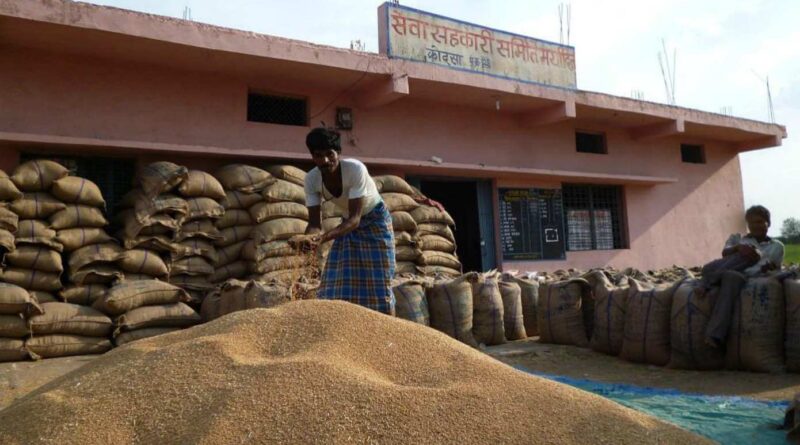Nearly 1/3 of paddy lifted so far from Punjab mandis, says minister
By Gurpreet Singh Nibber
The hopes to resolve the ongoing paddy procurement and lifting crisis in Punjab received a boost on Wednesday when 3,120 millers from the state came forward seeking allotment of paddy for shelling.
Punjab food and civil supplies minister Lal Chand Kataruchak said over 3,120 mill owners have already applied for allotment of paddy, 2,522 have been allotted stocks and at least 1,550 rice mills have already executed agreements with state agencies for storage and milling of paddy.
“A sum of ₹5,683 crore have been directly transferred to farmers’ accounts as crop payment,” he said, in a press release.
His statement came amid farmers complaining of “tardy” paddy procurement in the state.Kataruchak further said that despite initial disruptions due to the reluctance of a few rice miller groups, the lifting process has gained momentum in all districts.
On the contrary, a miller, pleading anonymity, added that signing contracts with the food department is separate from lifting stocks from the mandis.

“The glut can only be dealt with if millers agree to stock government stocks at their premises,” the miller said.
On Wednesday, the total paddy arrivals in the state mandis touched 38.4 lakh tonnes. Out of which, less than one-third or 10 lakh tonnes has been lifted. Interestingly, for the first time in 23 days since the procurement started, a total of 2.5 lakh tonnes was lifted on a single day on Wednesday, as per government figures.
Millers’ delegation meets Union minister
A delegation of millers from the state also met the union food and public distribution minister Pralhad Joshi in New Delhi. The millers asked the minister to send teams to the state mandis to analyse crop quality which they claimed was not giving an acceptable rice yield of 67%.
Millers claim that short-duration variety (PR 126) sown over 43% of the total cultivated area, mixed with hybrid varieties, has led to a fall in rice content in paddy to 62-64%, a direct loss of 3-5 kilogram per quintal.
The central minister, however, didn’t accept the demand and according to Ranjit Singh Josson, vice-president of the rice millers association, Joshi told the delegation that the matter is being examined by the Indian Institute of Technology (IIT), Kharagpur.
Regarding sending the teams for on-ground checking, Jasson said that the minister said, he would take up the issue before the Union cabinet.
The rice millers said the Union minister also announced that the government has abolished the minimum export price (MEP) on non-basmati rice.
Highest rail rakes allocated for faster grain evacuation.
New Delhi The Centre on Wednesday said it has provided a month-wise plan allocating maximum rail rakes to Punjab for expedited evacuation of existing rice stocks.
“The highest priority has been given to Punjab and Haryana for evacuation of the stock,” Joshi told reporters, addressing concerns over procurement delays.
He emphasised that a detailed space-creation strategy has been shared with the state government.
“We have given a detailed plan to the Punjab government on the creation of space. …Highest number of rakes have been provided…,” he added.
Genesis of procurement muddle
Bumper crop: This year paddy has been sown on 32 lakh hectares. Experts have predicted a bumper harvest of 230 LMT with government slated to procure 185 lakh tonnes.
Export ban: The Centre last year banned export of non-basmati and imposed minimum export price on export of basmati due to which the stocks got held up in the godowns.
Space Crunch: The rice (120 lakh tonnes) and wheat (48 lakh tonnes) of the previous season have not been moved out of the state leaving it with no space to store freshly procured paddy this season. Punjab has a total storage space of 174 lakh tonnes of covered space including 7 lakh tonnes of steel silos. Tardy lifting has left no space in mandis.
Millers wary of PR126 and hybrid varieties: Millers are seeking relaxation in out-turn ratio (rice yield). They claim PR126 when mixed with other varieties is giving rice less than the norms of 67%. Moreover the previous season’s stock is also stored with the millers and they claim the quality of paddy has deteriorated which will lead to losses.
This article has been republished from The Hindustan Times

